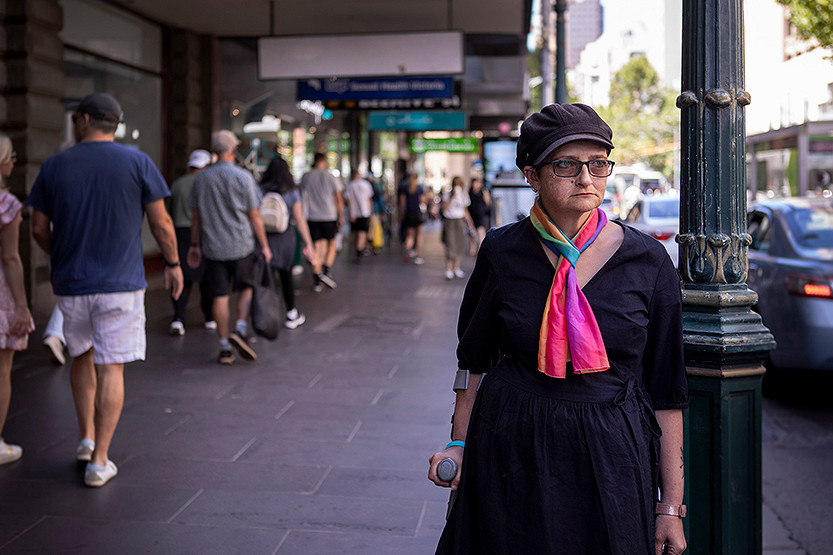Empowering community for a safer future
During the past few weeks I’ve been seen a ridiculous amount of commentary on what can only be described as safety concerns on the streets of Melbourne.
All of them, without fail, have blamed the same groups of individuals for these safety issues: the homeless, the drug and/or alcohol affected and/or people with mental health issues, and all have called for the same response: more policing.
All of the commentators have missed a root cause of the problem and all have missed that nothing ever goes well when their so called solution is imposed on the population copping the blame.
The safety issues currently being felt in Melbourne began with the policy people were praised for implementing. The program that shunted all street people into hotels during lockdowns without appreciation for the community they were decimating, and without consulting any of the people they were imposing this policy on.
What those who implemented this program failed to understand was that those who lived on the streets were a community that was formed over many years. The community had structure and it had a hierarchy. The elders within the community used to support people new to the streets, they’d teach them how to survive and they sorted out problems within their community; the hotels program completely destroyed that structure. Those elders didn’t necessarily go into hotels, but they did move on and they haven’t come back.
Due to those who made decisions about this community not acknowledging a community existed in the first place and then making decisions about them, without them, the safety issues people are experiencing today were both predictable and inevitable because of something else COVID did in society.
One of the implications of COVID was what it did to people’s housing. We had people move from ownership to rental so they could survive. Many of these people took over the great rental properties forcing those who had been in them into the next level of rental down, which forced the next level down and so on – there has essentially been a domino effect in rental properties.
That’s one thing at the top end of the market, but what happens at the bottom end? What happens is those who are used to living in rooming houses are forced out onto the streets.
People who live in rooming houses have a very different set of survival skills than those who live on the streets, and in normal circumstances the street elders would have helped them to learn those new skills, but they aren’t there anymore.
We now have people trying to learn new skills to survive as well as establish a hierarchy while they are in crisis, it’s no surprise to me that the public are feeling unsafe; again, this was predictable.
We can’t have people feeling unsafe in what was once the World’s Most Liveable City, but the last thing that is useful is over policing.
All policing will do is to further traumatise already traumatised people, making them more untrusting and angrier through the process; this always leads to more drug and alcohol problems, worse mental health outcomes and, therefore, more volatile people.
Instead of taking this approach it would be far better if this community were engaged with, supported to build their community, helped to establish their own order, and given some responsibility for a change.
Sure, this approach will take longer than throwing everyone in jail, but the long-term benefits have the potential to be better for all of society, not just those with voices that are currently heard.

City of Melbourne unveils next urban forest plan for the CBD





 Download the Latest Edition
Download the Latest Edition